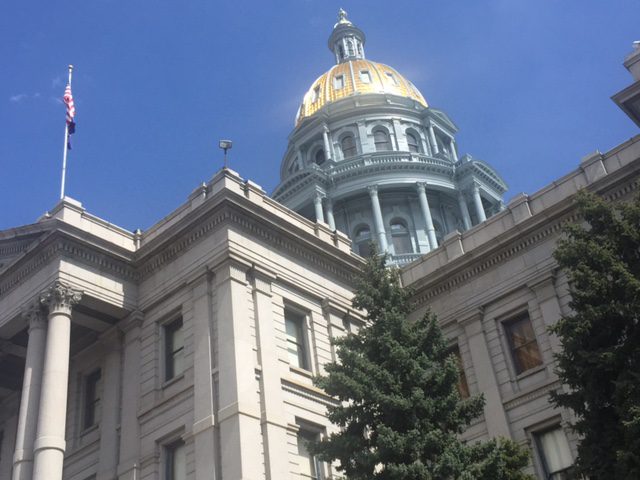A summary of the list of recommendations on the implementation of the OBBBA in Colorado regarding public benefits systems and work requirements.
Recent articles
CCLP testifies in support of Colorado’s AI Sunshine Act
Charles Brennan provided testimony in support of Senate Bill 25B-004, Increase Transparency for Algorithmic Systems, during the 2025 Special Session. CCLP is in support of SB25B-004.
Coloradans launch 2026 ballot push for graduated state income tax
New ballot measure proposals would cut taxes for 98 percent of Coloradans, raise revenue to address budget crisis.
CCLP statement on the executive order and Colorado’s endless budget catastrophe
Coloradans deserve better than the artificial budget crisis that led to today's crippling cuts by Governor Jared Polis.
Legislative Update: Feb. 22, 2019

Bill to Watch: HB 1189
No one argues with the proposition that people should pay their legitimate debts. A technique that creditors often use is something called wage garnishment. This is a legal practice in all 50 states. Unfortunately, the protections Colorado law provides for people whose pay is garnished are inadequate. This is particularly problematic for lower income individuals who are struggling to make ends meet and for individuals under financial stress.
Under current Colorado law, an employer must perform three calculations to determine how much of an individual’s paycheck must be garnished and sent to the creditor. Simply put, this formula is most punitive to workers who are barely making ends meet already. In addition, Colorado’s garnishment law provides little time and notice so those affected can find other ways to cover their expenses.
Developed by CCLP, House Bill 1189 would ease the burden of wage garnishment on the hardest-hit Coloradans by requiring clearer and more timely notice of a garnishment so people can understand their options and prepare for the possible reduction in their income.
The bill also would reduce the amount subject to garnishment to help people meet their budget while also paying their debts. In addition, HB 1189 would create a general hardship exemption that would let people make the case their garnishment should be further reduced – or eliminated altogether – if needed to support themselves and their families.
Introduced earlier this week, HB 1189 is sponsored in the House by Reps. Matt Gray and Alex Valdez and in the Senate by Sen. Jeff Bridges. It is scheduled to be heard by the House Finance Committee on March 11.
Bill to Watch: HB 1127
Too many Coloradans struggle to afford health care and meet their other basic needs. So we are encouraged to see an effort by the Governor’s office that will dedicate the resources and authority of his office to addressing the challenge of rising health care costs.
House Bill 1127, which recently passed out of the Colorado State House, would allow Lt. Governor Dianne Primavera to serve as the Director of a new Office of Saving People Money on Health Care in the office of the Governor. We hope this new initiative can be a source of innovative ideas, and that it will keep the needs of the lowest-income Coloradans in the forefront of its work.
Much of the conversation about health care costs in Colorado has focused on the high cost of health insurance for Coloradans in the mountains whose income is too high for federal insurance subsidies. Although it is important to address that problem, the uninsured rate for Coloradans whose income is between 139 to 299 percent of the FPL is double that of those whose income disqualifies them for subsidies. In addition, too many people entitled to critical Medicaid services are unable to access the care they need due to a lack of providers or other systemic barriers. Clearly, Colorado must make progress on many fronts and not just high health insurance premiums.
CCLP supports HB 1127 and looks forward to working with the Lt. Governor’s new office to prioritize improving access to affordable health insurance for lower-income Coloradans who do not qualify for Medicaid, and ensuring that Medicaid meets the health care needs and legal rights of Medicaid members.
– By Bob Mook
